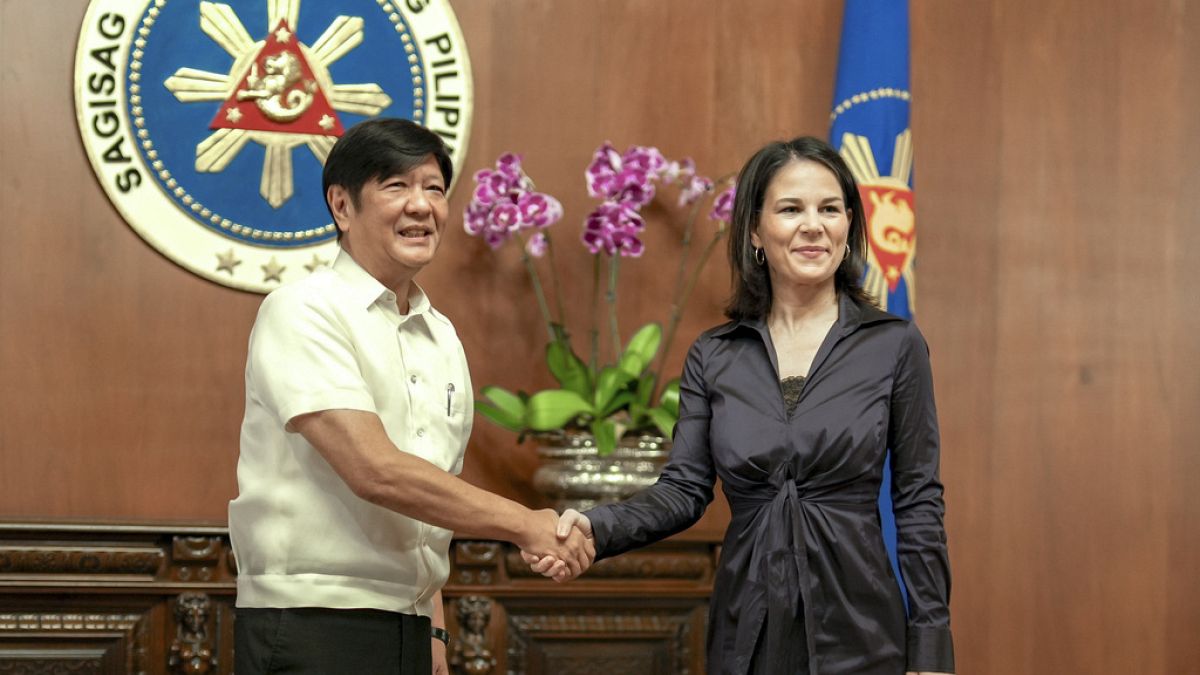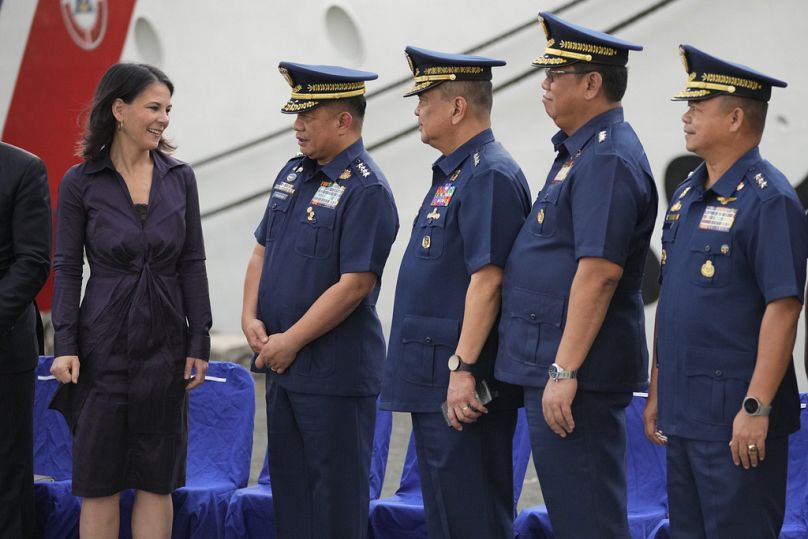Speaking during a visit to the Philippines, the German foreign minister says the nation will support Asian coastal nations against China’s controversial actions.
Germany’s top diplomat has said that China’s actions in the South China Sea violate the rights of Asian coastal states like the Philippines and threaten freedom of navigation.
She did, however, add that territorial disputes have to be resolved peacefully because “the world doesn’t need another crisis."
Annalena Baerbock, who held talks with Philippine President Ferdinand Marcos Jr. and other top officials while visiting Manila, said Germany was ready to help de-escalate growing tensions.
She added that it was crucial to set up “mechanisms” to resolve the disputes peacefully and foster dialogue.
"There are truly rough winds blowing across the South China Sea and this is happening in the middle of one of the most dynamic economic regions of the world,” she told a news conference in Manila.
“It is now important to set up mechanisms to solve tensions together in a peaceful way,” she said without elaborating. “I think we all agree that the world doesn’t need another crisis. There are too many crises at once.”
In a symbolic gesture of Germany’s support for the Philippines, Baerbock visited the coast guard headquarters in Manila and boarded a patrol ship, where she briefly flew one of a number of surveillance drones that Germany donated to the Philippines.
Philippine coast guard officials said the drones would help the country defend its territorial interests in the South China Sea, enforce maritime laws and undertake search and rescue missions during accidents at sea.
Chinese officials have not yet issued a reaction.
The decades-long territorial dispute escalated last year between Beijing and Manila, sparking fears it could degenerate into a major conflict that could involve the United States - a longtime treaty ally of the Philippines.
Chinese coast guard ships and accompanying vessels used military-grade laser and water cannons against Philippine coast guard and supply vessels and undertook dangerous manoeuvres near disputed shoals, prompting the Philippines to file a large number of diplomatic protests against China, Philippine officials said.
The US has repeatedly warned it is obligated to defend the Philippines if its forces, aircraft and ships come under an armed attack, including in the South China Sea. China has warned the US and its allies not to meddle with what it says is a purely Asian dispute and build up its forces in the region, warning of unspecified consequences.
China's actions in the South China Sea, which have led to minor collisions with Philippine vessels, are of concern to Germany and other European countries, Baerbock said, “because such risky manoeuvres violate rights and opportunities for economic development of your own country and other littoral states.”
“They also put into question the freedom of navigation and international law, affecting all countries worldwide,” she said, adding that China’s claims “are not covered by international law.”
The German foreign minister, the first to visit the Philippines in about a decade to bolster ties, cited a 2016 ruling by a United Nations-backed arbitration panel that invalidated China’s extensive territorial claims on historical grounds. China refused to participate in the arbitration, dismissed its ruling as a sham and continues to defy it.
Baerbock said the arbitration ruling was “crystal clear.”

